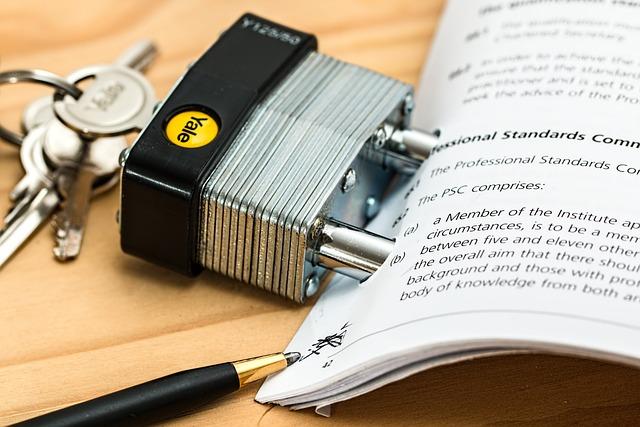In a important diplomatic engagement that underscores the International Bar Association’s (IBA) commitment to fostering legal discourse and collaboration in Africa, the IBA President and a high-level delegation are set to attend the East Africa Law Society Annual Conference in Uganda. This pivotal event, bringing together legal practitioners, policymakers, and thought leaders from across the region, aims to address pressing issues facing the legal profession and to promote the rule of law in East Africa. With a focus on enhancing legal frameworks, ensuring access to justice, and facilitating dialog on key regional challenges, the conference serves as a critical platform for advancing legal advancement. As the IBA President takes the stage alongside esteemed delegates, their insights and discussions are poised to shape the future of legal practise and governance in a rapidly evolving socio-political landscape.
IBA President’s Vision for Legal Reform in East Africa
the International Bar Association (IBA) President outlined a transformative vision aimed at bolstering legal frameworks across East Africa.His outlook emphasizes the need for collaborative initiatives among legal professionals, governments, and non-governmental organizations to achieve sustainable reform. Key priorities identified include:
- Strengthening Judicial Independence: Ensuring that judicial systems operate free from external pressures and influence.
- Enhancing Access to Justice: Developing legal aid programs that empower marginalized communities.
- Promoting Legal Education: Fostering partnerships with academic institutions to nurture the next generation of legal professionals.
- Encouraging Innovative Legal Practices: Leveraging technology to streamline processes and increase transparency.
Moreover, the President called for a multi-stakeholder approach to address regional challenges effectively. This strategic alignment seeks to harness the strengths of various entities to create a cohesive legal environment. An initial framework for reform may include:
| Sector | Proposed Action |
|---|---|
| Government | Policy Revisions for Enhanced Regulation |
| Private Sector | Investing in legal Tech Solutions |
| Academia | Curriculum Development for Current Legal Issues |
| Civil Society | public Awareness Campaigns on Legal Rights |

Impact of Ugandaﻗs Legal Landscape on Regional cooperation
The legal framework in Uganda plays a pivotal role in shaping the landscape of regional cooperation among East African nations. With its rich tapestry of laws and regulations, Uganda serves as a model for how legal systems can foster collaboration beyond borders. The country’s adherence to international treaties and regional protocols has not only enhanced its own governance structure but has also promoted shared legal standards across East Africa. key areas were Ugandaﻗs legal landscape influences regional cooperation include:
- Trade Agreements: Uganda’s commitment to trade agreements facilitates smoother economic relations with neighboring countries.
- Environmental law: collaborative efforts in managing shared resources, such as water bodies, are governed by Uganda’s robust environmental regulations.
- Human Rights Practices: Uganda’s legal advancements in upholding human rights support regional efforts to create a unified approach to social justice.
Moreover, the interplay of Uganda’s legal environment with regional entities, such as the East African Community (EAC), underscores its significance. The establishment of common legal frameworks aims to harmonize laws across borders, thus simplifying transnational legal processes and promoting mutual respect for legal obligations. The focus on areas such as:
| Legal Area | Impact on Cooperation |
|---|---|
| Trade Law | Facilitates cross-border commerce |
| Criminal Justice | Enhances regional security protocols |
| Dispute Resolution | Promotes peaceful conflict resolution |
ensures that nations can work cohesively towards common objectives, thereby solidifying Ugandaﻗs role as a cornerstone of regional legal cooperation. By championing such a collaborative legal landscape, Uganda sets a precedent for other East African nations to follow, creating a network of shared governance that strengthens the region as a whole.

Key Themes Discussed at the East Africa Law Society Annual Conference
The East Africa Law Society Annual Conference witnessed a rich tapestry of discussions illuminating critical issues facing the region’s legal landscape. Key themes revolved around access to justice, rule of law, and human rights, focusing on enhancing legal frameworks to better serve communities. Participants underscored the importance of fostering regional cooperation among legal practitioners to effectively tackle common challenges such as corruption and inadequate legal resources.High-profile speakers emphasized the necessity of integrating technology in legal practices to streamline processes and broaden access for marginalized groups.
Another pivotal theme highlighted was sustainable development and its intersection with legal regulations. Delegates engaged in dialogue about the role of the law in promoting environmental sustainability and equitable resource management. the need for capacity building among legal professionals was also a recurring topic, with an emphasis on mentoring programs that empower young lawyers.A dedicated session explored the effects of transnational crime on the region, advocating for collaborative initiatives to enhance law enforcement. these discussions set a progressive tone, positioning East Africa as a pivotal player in the evolving global legal framework.

Recommendations for Strengthening Legal Institutions in East Africa
Strengthening legal institutions in East Africa is paramount for fostering democratic governance and promoting the rule of law. To achieve this, the following strategies should be prioritized:
- enhancing Legal Education: support initiatives aimed at improving the quality of legal education in law schools, focusing on practical skills and ethics.
- Capacity Building: Invest in training programs for judges, lawyers, and court officials to ensure they are equipped with the necessary skills and knowledge.
- Judicial Independence: Advocate for reforms that strengthen judicial independence and minimize political interference in legal processes.
- Public Awareness: Launch campaigns to educate citizens about their legal rights, encouraging greater public engagement with the legal system.
Collaboration among regional legal bodies is essential to promote continuous improvement.Establishing partnerships can facilitate knowledge sharing and resource allocation. Consider the following collaborative focus areas:
| Focus Area | Objectives | expected Outcomes |
|---|---|---|
| Legal Framework Review | Assess existing laws for relevance and efficacy. | Updated and more effective legal frameworks. |
| Regional Conferences | Facilitate discussions on best practices. | Enhanced cooperation and consistency across jurisdictions. |
| Cross-Border Initiatives | Address transnational legal issues collaboratively. | Stronger regional legal responses to shared challenges. |

Challenges Faced by Legal Practitioners in the Region
The legal landscape in East Africa presents a myriad of challenges for practitioners, substantially impacting their ability to deliver effective legal services. One of the primary concerns is the inconsistent application of laws across different jurisdictions. This inconsistency creates confusion, particularly for lawyers working on cross-border cases. Furthermore, the limited access to legal resources and tools impedes the efforts of legal professionals to stay updated with the latest developments in local and international law. Barriers such as high costs and inadequate infrastructure for research exacerbate this challenge, leaving many practitioners at a disadvantage.
Additionally, political instability in several countries within the region poses significant threats to legal practice. Legal professionals often find themselves navigating a fraught environment where the rule of law is sometimes compromised. This unpredictability can deter local and foreign investment, further challenging the legal landscape. Another pressing issue is the lack of extensive training programs, wich hampers the professional development of lawyers. As legal complexities evolve, the need for continuous education becomes increasingly crucial, yet many budding lawyers find it tough to access quality training opportunities, thus affecting the overall legal framework in the region.

The Role of International Collaboration in Advancing Legal Standards
The recent visit of the IBA President and a high-level delegation to Uganda highlights the pivotal role that international collaboration plays in enhancing legal standards across regions. By participating in conferences such as the East Africa Law Society Annual Conference, legal professionals not only exchange knowledge and best practices but also foster networks that cultivate mutual understanding and cooperation. This collaboration transcends borders, emphasizing that legal standards are not merely national concerns, but rather a global priority that requires a unified approach. The engagement facilitates dialogue on pressing legal issues, providing a platform for voices that might otherwise go unheard.
Furthermore, the impact of international collaboration is evident through various initiatives aimed at harmonizing legal frameworks, notably in areas such as human rights, environmental law, and access to justice. Some key elements of these collaborative efforts include:
- Capacity Building: Workshops and training programs designed to empower local legal practitioners with the skills necessary for modern challenges.
- Resource Sharing: Access to international legal resources, enhancing local knowledge and practice.
- Policy Development: Joint efforts in crafting policies that align with international norms while considering local contexts.
Insights and Conclusions
the visit of the IBA President and the high-level delegation to uganda for the East Africa Law Society Annual Conference marks a significant step in fostering collaboration and dialogue among legal professionals across the region. This gathering not only highlights the critical issues facing the legal landscape in East Africa but also underscores the International Bar Association’s commitment to promoting the rule of law, human rights, and access to justice. As participants engage in discussions and share best practices, the outcomes of this conference are poised to have a lasting impact on legal frameworks and governance in the area. Looking forward, the partnerships and initiatives fostered during this event will be vital in navigating the evolving challenges in the legal sector and further strengthening the role of law in society across East Africa. the IBA remains dedicated to supporting these efforts as it continues to champion the vital role of lawyers in promoting justice and democracy worldwide.







